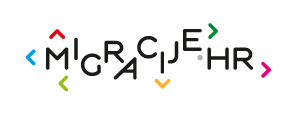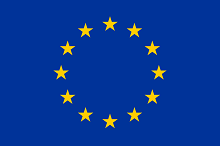The activity of social welfare is performed by social welfare institutions, local and regional self-government units, i.e. the City of Zagreb, associations, religious communities, other legal entities, craftsmen and other natural persons who perform social welfare activities. Supervision over the performance of social welfare activities is carried out by the ministry in charge of social welfare affairs.
Rights and services in the social welfare system are regulated by the Social Welfare Act (Official Gazette, No. 18/22 , 46/22 , 119/22 , 71/23), the Personal Assistance Act (Official Gazette, No. 71/23) and the Inclusive Supplement Act (Official Gazette, No. 156/23).
Foreigners realise their rights in the social welfare system in accordance with their statuses recognised in the Republic of Croatia on the basis of certain documents defining such statuses.
Foreigners who are in an unfavourable situation with one of the following statuses are:
– a foreigner with a permanent residence and a long-term stay in the Republic of Croatia;
– a stateless person with a temporary and permanent residence and a long-term stay in the Republic of Croatia;
-a foreigner with established status as a victim of human trafficking;
– a foreigner under subsidiary protection, an asylum seeker and a foreigner under temporary protection, and members of their families legally residing in the Republic of Croatia.
These persons have the same rights in the social welfare system as nationals of the Republic of Croatia residing in Croatia.
All others who are not listed may be entitled to a one-time compensation and accommodation service in other cases under the conditions prescribed by the Social Welfare Act, provided this is necessary due to the person’s circumstances at the time.
The Ministry of Physical Planning, Construction and State Assets provides accommodation to asylum seekers and foreigners under subsidiary protection, if they are unable to settle their housing costs by their own means, according to the Act on International and Temporary Protection (Official Gazette No 70/15, 127/17 and 33/23). Housing costs are settled from the state budget. Accommodation is provided for a maximum period of 24 months from the date of the decision on the approval of international protection.
Benefits within the social welfare system under the Social Welfare Act and Inclusive Allowance Act are the following:
- Guaranteed minimum benefit,
- Housing allowance,
- Allowance for the endangered energy source buyers,
- Personal allowance,
- One-time benefit,
- Compensation for funeral expenses,
- Compensation for full-time study,
- Payment of accommodation costs in student dormitories
- the Parent Caretaker Status, or the caretaker status
- Inclusive Allowance,
- Compensation for transportation costs due to schooling.
Social services based on Social Welfare Act and Personal Assistance Act are the following:
- first social service,
- comprehensive assessment and planning service,
- counselling,
- professional assessment,
- psychosocial counselling,
- social mentoring,
- family mediation,
- psychosocial treatment to prevent violent behaviour,
- psychosocial support,
- early development support,
- assistance in inclusion in regular education programmes,
- home help,
- stay,
- organized housing and
- accommodation
- personal assistance.
The Croatian Institute for Social Work decides on the recognition of rights and social services in the administrative area of social welfare by a decision or referral, except for the right to compensation for housing costs decided by the local self-government unit, i.e., the City of Zagreb.
Relevant links
- Ministry of Labour, Pension System, Family and Social Policy
- Social Welfare Act, OG 18/22, 46/22, 119/22, 71/23
- Act on International and Temporary Protection, OG 70/15, 127/17 and 33/23
- Inclusive Allowance Act (Official Gazette no. 156/23)
- Personal Assistance Act (Official Gazette no. 71/23)
- The Croatian Institute for Social Work






